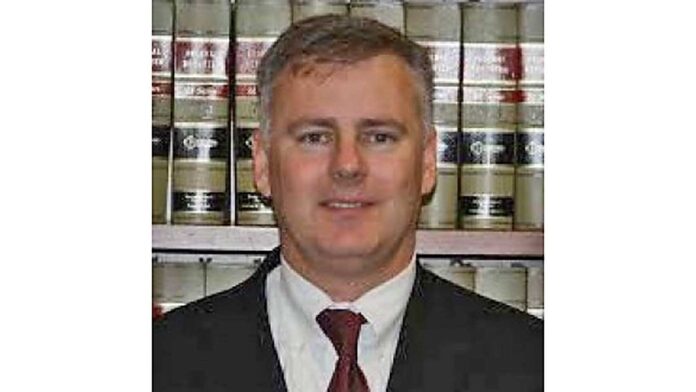A federal judge recently issued a ruling that has the potential of expanding religious carve-outs for anti-LGBT employers, despite last year’s Supreme Court decision extending federal workplace protections to LGBT individuals.
In 2020, in the Bostock v. Clayton County case, the Supreme Court ruled Title VII of the 1964 Civil Rights Act covers workplace discrimination on the basis of sexual orientation and gender identity, because such bias is a form of sex discrimination.
However, the high court didn’t address the issue of religious carve-outs, and a coalition of Christian conservatives based in Texas wants a federal judge to protect their right to discriminate on the basis of LGBT status.
On Jan 26, in a 19-page ruling, U.S. District Judge Reed C. O’Connor of the Northern District of Texas permitted the coalition to move forward in its lawsuit against the federal Equal Employment Opportunity Commission.
O’Connor is a Bush-era appointee who struck down the Affordable Care Act and nullified Obama-era health insurance protections for LGBT people.
The coalition is trying to prevent the EEOC from enforcing Title VII protections as they pertain to anti-LGBT bias. The EEOC has long held that Title VII’s workplace protections extend to LGBT workers.
The challengers include a council of more than 1,000 conservative churches, a Christian church near Dallas and a Houston-area health center. They claim the First Amendment and the Religious Freedom Restoration Act allow them to discriminate on the basis of LGBT status because to do otherwise would interfere with the free exercise of their faith.
One of the plaintiffs, Stephen Hotze, runs a health center that employs about 70 individuals. Hotze maintains it would be against his religious beliefs to provide health insurance to same-sex partners of his employees. He doesn’t wish to comply with federal mandates for such coverage. He also doesn’t wish to allow trans employees to use gender-appropriate restrooms or wear gender-appropriate clothing, according to court records.
In his ruling, O’Connor indicated his disagreement with EEOC guidance regarding LGBT employment rights.
“The EEOC issued a guidance document that demands that employers recognize same-sex marriage on the same terms as opposite-sex marriage,” O’Connor wrote. “The EEOC also demands that employers allow employees into restrooms that correspond to the gender identity that they assert — regardless of the individual’s biological sex, regardless of whether the individual has had a sex-change operation, and regardless of any objections or privacy concerns that might be raised by other employees.”
Moreover, the judge used problematic terminology when referring to LGBT individuals, including the phrase “practicing homosexuals and transgenders.”
GLAAD blasted O’Connor’s language as “inaccurate, outdated and disrespectful.” The orgranization also wrote, “GLAAD’s media reference guide has, for decades, advised against using terms like ‘homosexual.’ The fact that the term was used by a judge — who should have more education and awareness given the issues that come into the courtroom, including the many cases involving LGBTQ people — is deeply troubling. In addition, our transgender media guide recommends using transgender as an adjective when describing a person, such as ‘transgender American’ — not ‘transgenders.’ Trans people are people, like everyone else. And it’s offensive to label them solely by their gender identity.”
Other LGBT advocates decried O’Connor’s ruling.
“Judge O’Connor’s ruling misrepresents the clarity the Supreme Court provided in Bostock in favor of unnecessary and harmful religious exemptions to basic civil rights protections,” said Adrian Shanker, executive director of Bradbury-Sullivan LGBT Community Center. “Conservatives like to complain about judicial activism. But Judge O’Connor is the poster child for it with his repetitively fringe rulings that only a far-right zealot would find sensible. His ruling is a reminder that it is so critical that Congress passes explicit federal non-discrimination protections this year.”
Justin F. Robinette, a civil-rights attorney, also expressed concern about O’Connor’s ruling.
“This ruling is concerning and outside of the mainstream,” Robinette said, in an email. “But I expect it to lead to another unfavorable ruling from Judge O’Connor and potential appeals. The underlying lawsuit is part of a worrisome trend of putative Christian groups reframing the enforcement of LGBT-inclusive antibias laws as a form of discrimination against their religion. They want to create a right to discriminate that — taken to its extreme — would exempt them from every civil law, including the civil rights laws and the recent Supreme Court ruling in Bostock. We should approach the balance between LGBT rights and religious beliefs in a nuanced manner rather than the sledgehammer approach taken by plaintiffs and Judge O’Connor.”
Kenneth D. Upton Jr., senior litigation counsel at Americans United for Separation of Church and State, echoed those sentiments.
“This is not a substantive ruling on the plaintiffs’ claims, just an initial procedural order on whether the lawsuit should proceed,” Upton said, in an email. “That said, the court’s ruling does seem to signal a willingness to let majoritarian religions misuse religious freedom in a way that harms others who believe differently — even when that conduct violates the law. What is most disturbing about the ruling is the trend in this court and a few others across the country to disregard long-standing rules about who can sue and when. This abuse of the legal system results in nothing more than finding solutions for disputes that don’t yet exist. This is what makes people view the courts as increasingly political and partisan.”
In an email, a spokesperson for the U.S. Department of Justice said: “The Department is reviewing the decision [by O’Connor] and determining next steps.”
Attorneys for plaintiffs didn’t immediately respond to an email seeking comment.

